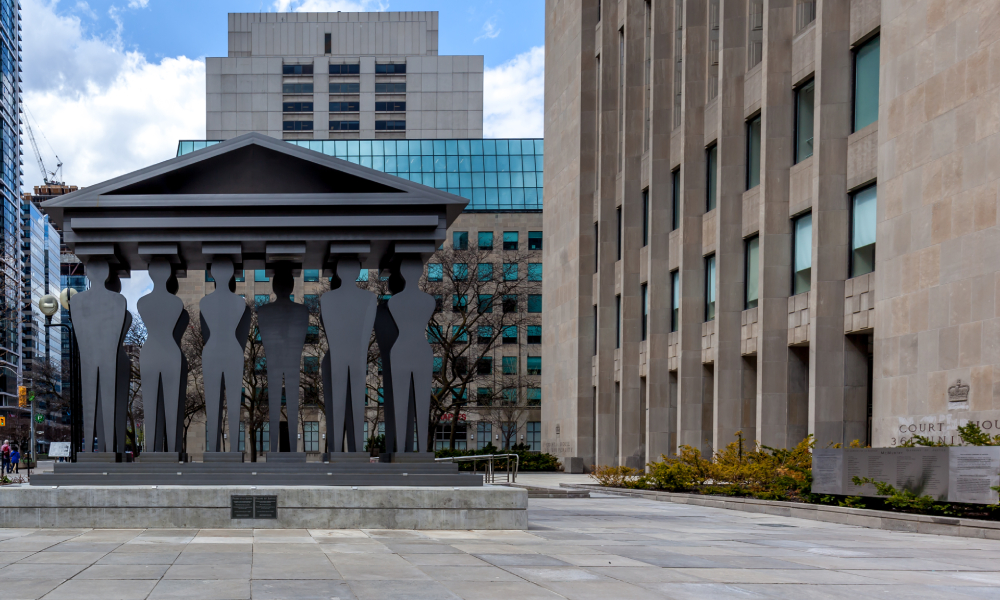
Documents should not be disclosed due to irrelevance and litigation privilege, plaintiffs claim

The Ontario Superior Court of Justice has recently compelled plaintiffs to disclose certain relevant and material information to two physicians whom the plaintiffs sought to add as defendants to their medical malpractice action.
In Zimmerman v. McNaull, 2021 ONSC 3436, the plaintiff patient had a brain aneurysm that burst in 2013. With symptoms including severe headaches, the patient paid numerous visits to her family physician’s office and to the local hospital’s emergency department in late July and in early August 2013. She received diagnoses such as musculoskeletal neck pain, vertigo and migraines at that time.
In July 2013, the patient had a computerized tomography (CT) scan, which a radiologist found unremarkable. In August 2015, the patient had a second CT scan, which showed a subarachnoid hemorrhage caused by the burst aneurysm. The patient continued to experience cognitive and physical disabilities such as short-term memory issues, confusion, headaches, fatigue, depression and gait instability despite having undergone surgery.
In July 2015, the plaintiffs initiated a medical malpractice action seeking total damages of $5 million and alleging that the named defendants, who each assessed or treated the patient in the summer of 2013, failed to meet the standard of care required under the circumstances and caused the patient’s injuries due to their negligence.
The plaintiffs then filed a motion for leave to add two physician defendants to the action. The plaintiffs contended that their lawyer received expert advice regarding this matter in June 2018, so they only recently discovered the potential claims against these two physicians.
The proposed defendants submitted that the claim against them was out of time and statute-barred by the Limitations Act, 2002, S.O. 2002, c. 24, Sched. B, because the plaintiffs discovered or ought to have discovered the potential claim earlier than June 2018.
In a motion interlocutory to the plaintiffs’ leave motion, the proposed defendants sought access to certain documents and information which would help them investigate the plaintiffs’ argument regarding the date when they discovered or ought to have discovered the potential claim. The plaintiffs countered that this documentation was either irrelevant or protected by litigation privilege.
The Superior Court of Justice of Ontario ruled that the plaintiff did not need to disclose most of the documents requested by the proposed defendants because they were not relevant to the live issues on the plaintiffs’ leave motion.
These issues revolved around specific factual findings that the judge in charge of the leave motion would consider. The facts included the date of the act or omission giving rise to the claim, the date when the plaintiffs had subjective knowledge of the claim and the date when the plaintiffs objectively ought to have acquired knowledge of the claim.
The court determined that the following information was irrelevant and need not be disclosed: the fee arrangements between the plaintiffs and their counsel’s firm, the communications relating only to the care furnished to the patient in 2013, preliminary reports received in July 2015 and in October 2018 and notes taken by the plaintiffs’ counsel regarding phone consultations with a neuroradiologist in May 2014 and with a neurosurgeon in October 2017, as well as notes from other phone consultations.
However, the court directed the plaintiffs to disclose some information to the proposed defendants, considering that the plaintiffs had impliedly waived litigation privilege over certain relevant and material documents in whole or in part. The documents included the names and contact information of the neuro-consultants from whom the plaintiffs’ counsel sought advice and the counsel’s notes during her phone calls with the consulting neurosurgeon in April 2018 and with the consulting neuroradiologist in June 2018.
“In my view, the plaintiffs cannot, in fairness, take the position that they did not and could not have discovered their claim against the proposed defendants until they received definitive opinions from their Neuro-consultants, then shield those consultants from any challenge or even inquiry by the opposing parties,” wrote Justice Cary Boswell for the Superior Court.